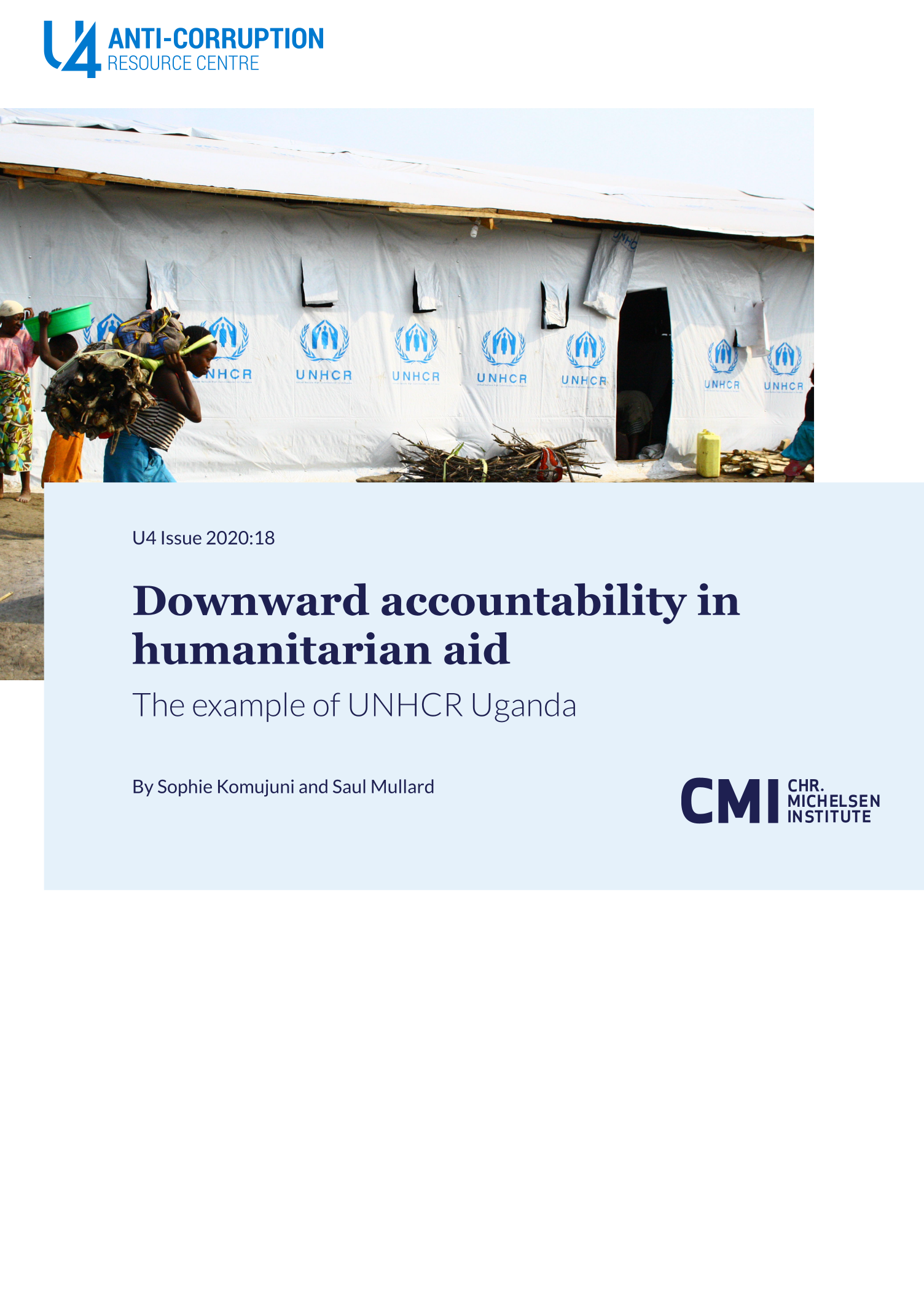Main points
- UNHCR Uganda’s Feedback, Referral and Response Mechanism (FRRM) is an example of a downward accountability mechanism. The aim of this research was to see if FRRM might be adaptable as a model to reduce fraud and corruption in other settings.
- FRRM provides a helpline and call centre to field feedback, provide information, and point refugees/Persons of Concern in the direction of support and services. It also allows reporting of fraud and corruption, and ‘whistle-blowing’ on cases of violence, abuse, and sexual exploitation.
- An important part of the mechanism is confidentiality. People reporting sensitive cases of fraud, corruption, or abuse can do so anonymously.
- The literature shows that downward accountability does not always show clear benefits. There is no ‘one-size-fits-all’ design and every mechanism has its challenges.
- The case study used data from the FRRM’s interagency dashboard. The researchers also interviewed UNHCR and partner organisations, and refugees in Bidibidi refugee settlement.
- Incidents of mismanagement, corruption, and fraud within its refugee protection system cost UNHCR millions of dollars each year. Through FRRM, UNHCR Uganda is hoping to improve accountability, empower communities, and increase protection.
- Key challenges to the system’s effectiveness included lack of resources, lack of organisational commitment, unintended consequences, and an absence of guidance and/or expertise.
- Recommendations include using participatory approaches in the design of downward accountability mechanisms, improving communication methods, and involving beneficiaries in the planning, design, and roll-out. Better training is also important, as well as making downward accountability a requirement of donor funding.
